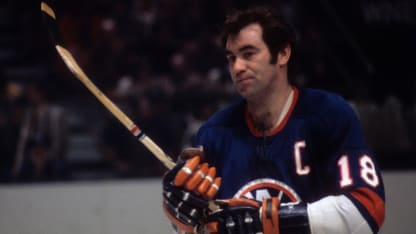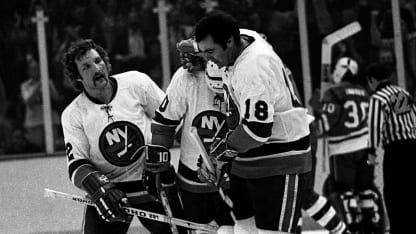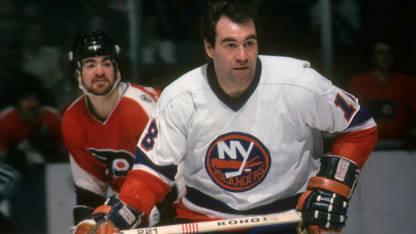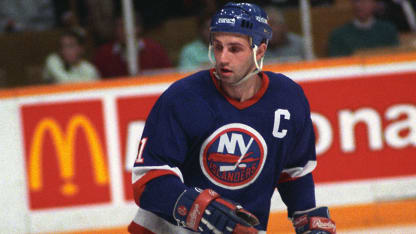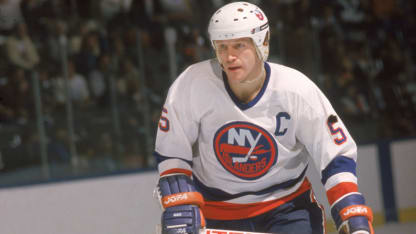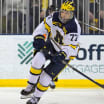Al Arbour, who became Westfall's coach in 1973-74, skated against Eddie as a player before becoming his mentor on the Island. Arbour succinctly supplied this scouting report:
"Westfall was a guy with a lot of intelligence and that's what made him such a good player."
In the eyes of innumerable pundits, the Bruins had erred in allowing Westfall to remain unprotected in the 1972 expansion draft.
In the end that proved to be true; the Bostonians failed to successfully defend the Stanley Cup without him in their 1972-73 lineup.
Meanwhile, Easy Ed gave the Islanders life while their brand-new fans took an instant delight in Number 18.
"You could see from the get-go that Westfall had the goods," said Marv Resnick, a Long Island resident who followed the Nassaumen from their first season. "He was the kind of player a fan like me wanted to root for; he was that good."
On the night of the Islanders' world premiere regular game -- against the Atlanta Flames -- it was Westfall who scored the first-ever Islander goal. It was a power-play tally late in the second period to even the score at 1-1.
With four days off between their opener and game no. 2, the Islanders spent much of that time hunting for apartments and homes on Long Island's north shore.
Club officials suggested they stay away from the south shore; they didn't want the Islanders fraternizing with the Rangers, who had established a commune in the Long Beach area.
Westfall and his youthful linemate Billy Harris wound up sharing a pad in Cold Spring Harbor while their teammates settled in Huntington, Westbury, Manhasset, Commack and Syosset.
If the maiden season was challenging for Eddie, he continually accentuated the positive both in the dressing room and on the ice. A realist, he never nurtured any illusions about his team's talent standard.
"At that time, we had few players on the squad who were of NHL calibre," Westfall candidly admitted during an interview with me last year. "That didn't bother me.
"I knew what my goal as captain was; I knew that I had to gain -- and earn -- the respect of the people I was playing with as well as the fans. They expected us to give our best; and we did."
Especially Easy Ed.
During a game against his former Boston teammates, Westfall displayed his new loyalty -- old one discarded -- when Bruins' ace Phil Esposito butt-ended young Islander Tom Miller who suffered an injured spleen.
Reacting instantly, Ed dropped his gloves and stick, swinging away at Espo. Looking backward, Westfall explained: "Phil knew why I went after him. If someone on our club did that to a Bruin, Phil would have reacted the same way."
